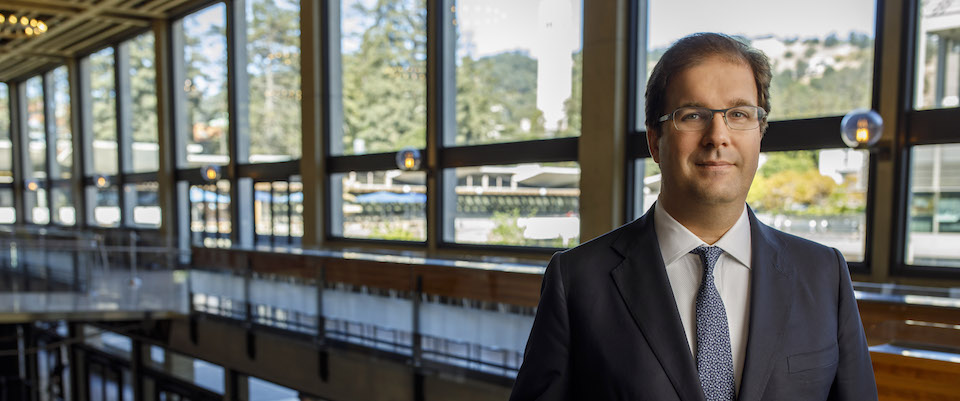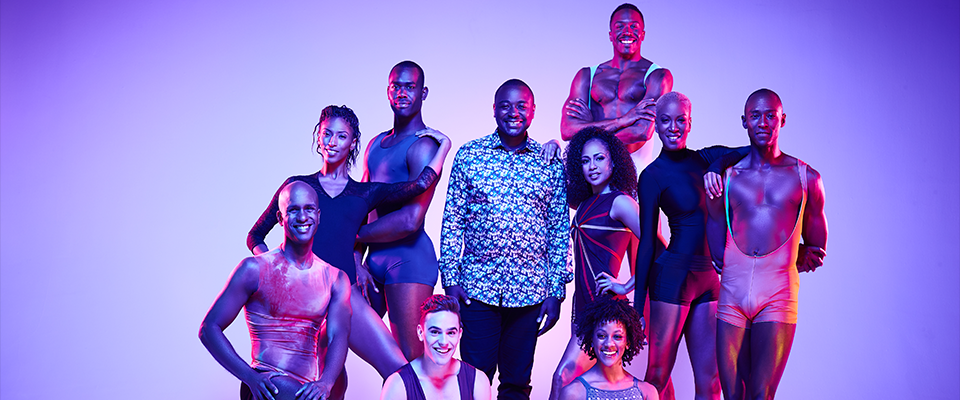The First World War was an early preoccupation of Cal Performances’ director Matias Tarnopolsky, who lately rediscovered a book of poems he treasured as a child in England. At age 11, he had written his name inside.
“I was profoundly impacted by the British war poets—Wilfred Owen, Rupert Brooke, Siegfried Sassoon,” he said, speaking in his office in UC Berkeley’s Zellerbach Hall on a recent chilly afternoon. As a music student, he would soon learn that the cataclysm of war accompanied a period of feverish experimentation in all the arts—in fact, the birth of modernism.
“We were brought up to see 1914 as the defining historical and cultural moment of the twentieth century,” said Tarnopolsky. “It struck me when I came to the U.S. that, for many reasons, World War I isn’t as present in the consciousness of Americans.”
To ensure that the centennial of the start of World War I is well-remembered and creatively explored, Cal Performances this season hosts two ambitious symposiums that will bring together scholars and performers. “That’s when the magic happens,” Tarnopolsky said. Each symposium is his brainchild and each suits Cal Performances’ dual mission—as museum and laboratory—to present great works while advocating for the new.
Art and politics will be explored during the Vienna Philharmonic Orchestra’s March 7-9 residency, through performances and panel discussions with Austrian and American scholars. And from April 4-6, the Kronos Quartet will present “A Meditation on War,” a campus residency that includes a symposium of conversations with artists and scholars, and the world premiere of a new piece written to commemorate the start of World War I.
The residencies aim to engage the campus community by offering master classes for Cal music students, as well as free open rehearsals. “Master classes are transformative for the students and the musicians adore it,” Tarnopolsky said. “We want the musicians to experience what life is like on campus.”
Participating Cal professors welcome the cross-pollination that the symposiums will invite. “I hope to learn something from people who’ve studied the First World War from different angles than I have,” said Adam Hochschild of the Graduate School of Journalism, author of “To End All Wars, 1914-1918.” Hochschild will join a panel discussion called “Making Peace after War,” part of the Vienna Philharmonic symposium.
That panel’s moderator—history professor Thomas Laqueur—calls the symposium “an opportunity to learn how major Austrian scholars and musicians understand the traumatic history of the past century.” (As if to illustrate the symposium’s signature synchronicity, “Making Peace after War” will follow a talk on Viennese Modernism and a concert of once-controversial chamber music, including Arnold Schoenberg’s “Transfigured Night.”)
In 1905, the Viennese architect Adolf Loos enjoined artists to “shake us out of our complacency and comfort.” In fact, the composers of his day were doing just that. “A slow dissolution of tonality already could be heard in the work of Brahms and Mahler,” said Tarnopolsky. Such reinventions will be heard in Zellerbach Hall in the three evening concerts that cap the symposium. Each is preceded by a talk by Clemens Hellsberg, chairman of the Vienna Philharmonic.
The orchestra will perform major symphonies by Haydn, Mozart, Schubert, Bruckner, and others that represent the musical backdrop of an era that spawned a war that would kill more than 37.5 million people. While the causes of the conflict are still sharply debated, many scholars agree it could have been avoided if the assassination of Archduke Franz Ferdinand of Austria-Hungary had not triggered out-of-date alliances.
“We cannot shed the experience of history,” said Tarnopolsky. “I hope sincerely that through hearing a piece by Mahler—or a multi-media collaboration by the Kronos Quartet—we can learn to look at the world in new ways.”
The members of the Kronos Quartet have an insatiable passion for pan-global music. To date, the group has commissioned 800 new compositions and created an unprecedented string repertoire. World War I “represents an incredible moment in culture,” said violinist David Harrington, the group’s founder, on a recent morning at Kronos’ headquarters in the inner Sunset district of San Francisco. “We liked the idea of a piece that marks the occasion.”
They began to imagine: What if Kronos had been active in 1914?
“If we were the same people, with the same ideas about what music could be, what would we be doing?” The answer came quickly. “We would be working with Stravinsky,” Harrington said, “and playing music by Mahler, Ravel, Debussy, and Turkish composer Tanburi Cemil Bey.”
They began work on a commemorative, multi-cultural piece with music by Serbian composer Aleksandra Vreblov, who recorded the chants of cloistered Serbian Orthodox monks, then arranged the recording for strings, and film by Bill Morrison. To further create the sound environment, Harrington scoured audio archives for period music recorded on wax cylinders—from John McCormick singing “It’s a Long Way to Tipperary,” to Gustav Mahler playing the funeral march from his Fifth Symphony, solo piano.
On April 6, Kronos will conclude their residency by performing their eclectic new piece, “Beyond Zero, 1914-1918.” Harrington promises an immersion in the sound-world of the First World War. “Music is not a way of avoiding the world,” he said. “Music is a way into experience.”



















